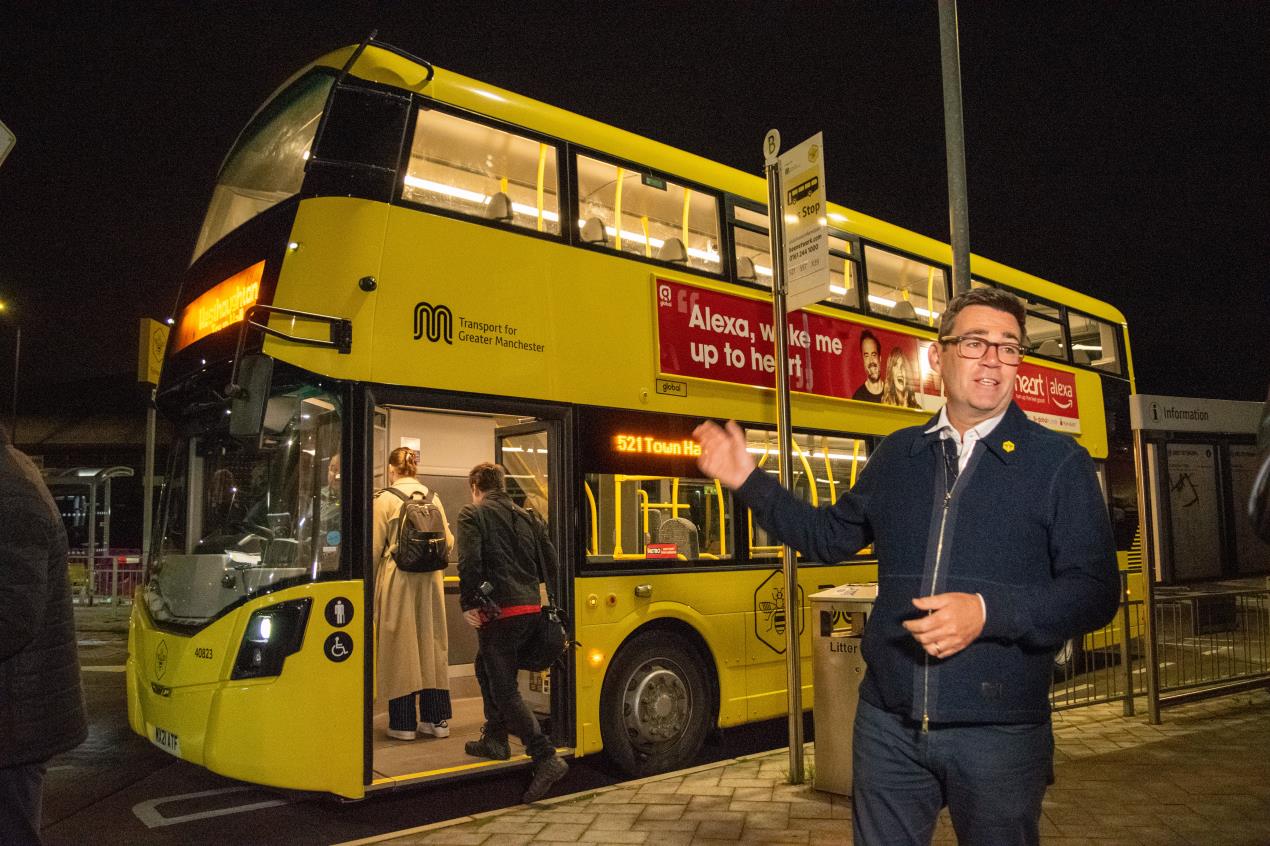Transport for Greater Manchester has released figures showing that, since its launch a year ago, more than 58 million bus journeys have been made on “cheaper, cleaner, more reliable bus services” on its new Bee Network.
Since the yellow buses were first launched in Bolton, Wigan and parts of Salford and Bury, it says nearly seven million more journeys have been made on the city region’s buses compared with the previous year, a five per cent increase.
TfGM adds that local control of buses is part of a plan to grow the Greater Manchester economy by providing better, more affordable public transport and making it easier for people to travel by foot, bike or wheelchair.
Greater Manchester Mayor Andy Burnham (pictured) said: “A year ago, we made history as the first area to bring our buses back under local control in almost 40 years. Today, we can see the progress we’ve made, with bus services now cleaner, cheaper and more reliable than before and record numbers of passengers using the Bee Network.
“The age and standard of our buses is better than ever, we’ve more staff, we’re keeping fares low and have launched more night buses for those working in our nighttime economy.
“The Bee Network is also delivering new jobs and apprenticeships both here in Greater Manchester and across the UK. And having control of our buses also means we can fund free bus travel for 16 to 18-year-olds. So, the cost of bus ticket need not be a barrier to work or study opportunities.
“As our pioneering Bee Network goes from strength to strength, it’s no surprise that others are looking to follow in our footsteps and that local control of buses is now a major national policy.”
Vernon Everitt, Transport Commissioner for Greater Manchester, added: “Huge strides have been made in delivering the Bee Network, which is bringing together buses, trams, trains and active travel into a single, simpler and more affordable system for the people and businesses of Greater Manchester.
“The first year of operations under bus franchising has proven the model. Patronage, punctuality and revenue are up and the cost of operation is down. The job now is to continuously improve the service and we are working with the districts and their local communities to do just that.”
(Picture – TfGM)
























